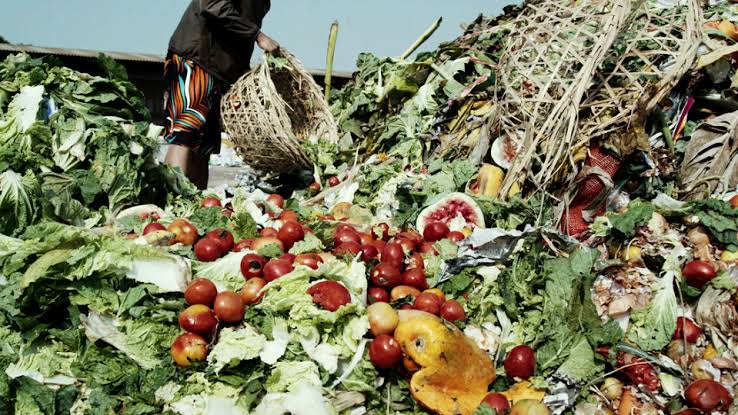By Olasoji Fagbola
Today, 29 September is the International Day of Awareness of Food Loss and Waste. The date is set aside by the United Nations to raise awareness of practices and innovations to reduce food loss and waste and build a more resilient food system. Frankly, the amount of waste from food commodities or food prepared at social gatherings, retailers and hoteliers are alarming.
The scary level of waste generated in markets across the country brings to mind how we have not innovatively tackled the issue of preserving perishable food commodities for the benefit of farmers who might have had to deal with impassable roads, levies of different kinds, and market middlemen over irregular pricing that might deprive the farmer from making profits as expected.
- Health Insurance: Erring facilities risk total closure – NHIA
- FEC okays N27bn Ondo, Edo road contract, N1.85bn for Ebonyi salt project
More interesting dimensions to this fact are Goals 2 and 12 of the SDGs: zero hunger and responsible consumption and production respectively. Considering that the World Food Programme provides an estimate which indicates that nearly 690 million people across the world are hungry, which stands at 8.9 percent of the world population, how then do we claim that the world is on track to achieve zero hunger by 2030? More so with the claim that if the trends continue, close to a billion of the world’s population would be affected by hunger in 2030.
SDG 12.3 states that by 2030 through sustainable management and efficient use of natural resources, the world will halve per capita global food waste at the retail and consumer levels and reduce food losses along production and supply chains, including post-harvest losses. This may end up becoming a non-realistic target. The change in climatic conditions is adversely affecting farmers world over and the amount of energy utilised in the production of food or crops end up wasted calls for concerted efforts.
It is high time we looked inward and conceptualized a framework in the form of food banks or food hubs to coordinate the redistribution of surplus food. A lot of people go to bed hungry and do not have sufficient food to eat, while large volumes go to waste daily. What a paradox! The living conditions of the victims of insurgency and internally displaced persons raised the moral question of whether we intend to ameliorate the living conditions or not.
Food banks should be created in major markets for the proper preservation of food commodities. To stem food waste, efforts should gear towards redistributing surplus food. This will create more opportunities for social inclusion. Food hubs are initiated across the country to collaborate with food businesses and commodity dealers with large volumes of excess food or perishable commodities. These are to be collected and delivered in safe conditions. Creating more awareness on how food waste contributes to greenhouse gas emissions and by extension affects the planet through harsh climatic conditions.
Leveraging technology through a dedicated application, food banks and food hubs are to be connected to food retailers and hoteliers to mop up surplus or excess food and redistribute them accordingly.
In commemorating today, let’s as good citizens take it as a point of duty to contribute to the reduction in food waste most especially in our sphere of influence.
Olasoji Fagbola is a Sustainable Development expert, policy analyst with flair for Science Journalism. He writes via [email protected]

 Join Daily Trust WhatsApp Community For Quick Access To News and Happenings Around You.
Join Daily Trust WhatsApp Community For Quick Access To News and Happenings Around You.


